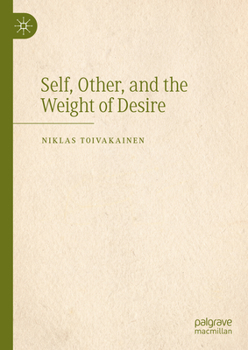Self, Other, and the Weight of Desire
This is a book about the moral-existential nature of, and the desire inscribed in, the deadlocks generated by our attempts to ground and exhaustively explain the concerns that provoke philosophical reflection.
While the book argues that these deadlocks are symptomatic of an impossibility internal to the very enterprise of grounding and explanation, it does not, however, declare any substantial groundlessness. Rather, the book shows that the choice between secure ground and groundlessness, or between final explanations and the inexplicable, is ultimately arbitrary. Instead, through readings of the so-called hard problem of consciousness, of Descartes' first principle of philosophy, of Plato's dialogue Gorgias, and of Lacan and Wittgenstein, Toivakainen argues that the actual point of significance, the sense of the impossibility or deadlock, must be traced back to the claims of desire that inform the very movement of grounding and explanation, a desire that is inscribed in a constitutive and inescapable address between self and other. In short, the book translates and rewrites points of structural deadlock into their (original) moral-existential landscapes by following traces of desire.Format:Hardcover
Language:English
ISBN:3031402758
ISBN13:9783031402753
Release Date:October 2023
Publisher:Palgrave MacMillan
Length:180 Pages
Weight:0.85 lbs.
Dimensions:0.5" x 5.8" x 8.3"
Related Subjects
PhilosophyCustomer Reviews
0 rating





